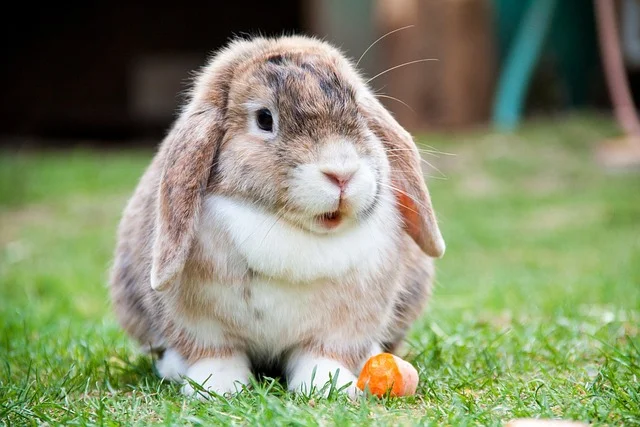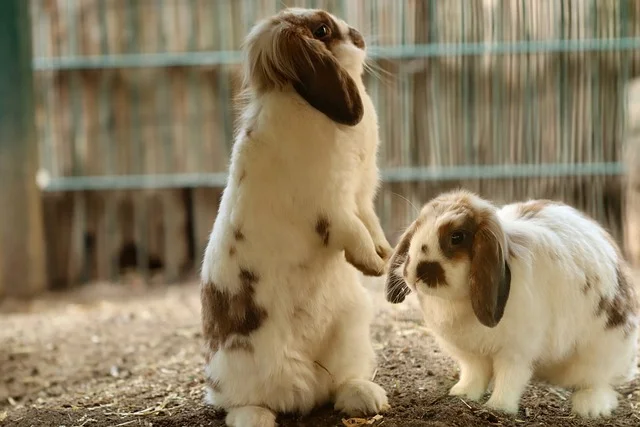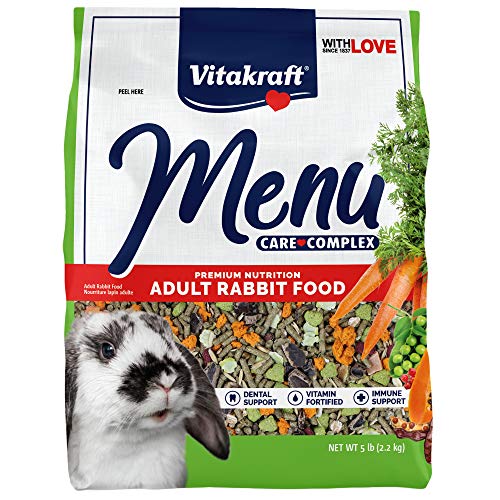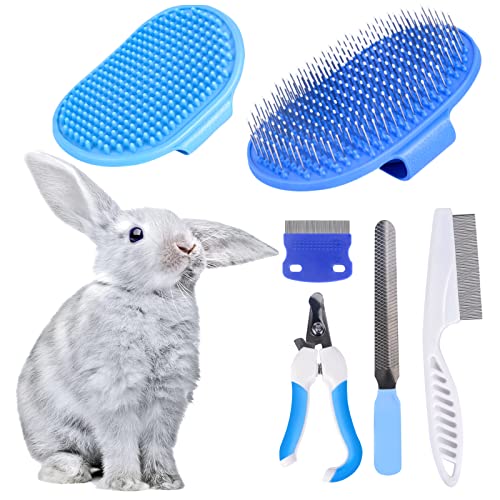Are you considering adding a Mini Lop rabbit to your family? These adorable, floppy-eared companions are not only cute but also make wonderful pets. In this comprehensive guide, we’ll walk you through everything you need to know about owning and caring for Mini Lop rabbits, from their unique characteristics to essential care tips.
The Mini Lop Rabbit: A Charming Breed
Mini Lop rabbits are a popular breed known for their small size, unique floppy ears, and gentle temperament. Originating from Germany, these delightful creatures have quickly gained popularity among rabbit enthusiasts worldwide due to their charming appearance and friendly nature.

Characteristics and Physical Attributes
Mini Lop rabbits typically weigh between 3.5 to 6.5 pounds (1.6 to 2.9 kilograms) and have a compact, muscular body. Their most distinctive feature is their lop ears, which hang down on either side of their head, creating an irresistibly cute and endearing look. These adorable rabbits come in a wide variety of colors and patterns, including solid, broken, and shaded coats, allowing you to choose the perfect furry friend to suit your preferences.
Temperament and Personality
Known for their gentle and affectionate nature, Mini Lop rabbits make excellent companions for individuals and families alike. These sociable creatures thrive on human interaction and enjoy being petted and cuddled. With proper handling and care, Mini Lops can develop strong bonds with their owners, bringing joy and companionship to their lives.
Caring for Your Mini Lop Rabbits
Owning a Mini Lop rabbit requires commitment and responsibility to ensure their well-being. By following these essential care guidelines, you can provide your fluffy companion with a happy and fulfilling life:
1. Creating a Safe and Stimulating Environment
Suitable living space is vital for the health and happiness of your Mini Lop rabbit. Ensure they have a spacious enclosure that allows for exercise and exploration. Line the bottom of the enclosure with soft bedding, such as hay or straw, and provide hiding spots and toys to keep your rabbit mentally stimulated.
For a comfortable living space, consider using a spacious rabbit hutch like the MidWest Homes for Pets Rabbit Cage. Ensure the hutch is well-ventilated, easy to clean, and provides enough space for your Mini Lop to move around.
2. Providing Proper Nutrition
Maintaining a balanced diet is essential for your Mini Lop’s overall health. A high-quality rabbit pellet should serve as the foundation of their diet, supplemented with fresh vegetables, leafy greens, and occasional treats. Always ensure a fresh and clean water source is readily available to keep your furry friend hydrated.
A high-quality rabbit pellet should serve as the foundation of their diet. You can find a great option on Amazon [Vitakraft Menu Premium Rabbit Food or Supreme Petfoods Science Selective Rabbit Food]. Additionally, provide fresh vegetables and occasional treats. For convenience, you can purchase a selection of rabbit-friendly vegetables from Amazon [Amazon link to vegetables].
3. Grooming and Hygiene
Regular grooming sessions help keep your Mini Lop’s coat clean and free from tangles. Brush their fur gently using a soft brush or comb, paying extra attention to their ears, which can be prone to wax buildup. Additionally, it’s essential to trim their nails regularly and check their teeth for any signs of overgrowth or dental issues.
Regular grooming sessions help keep your Mini Lop’s coat clean and free from tangles. A soft brush like Hair Buster Comb for Rabbits from Amazon can be very helpful. Additionally, consider investing in nail clippers to keep their nails trimmed [HAICHEN TEC Rabbit Nail Clippers and Trimmers].
4. Exercise and Mental Stimulation
Mini Lop rabbits are active animals that require regular exercise to maintain their physical and mental well-being. Provide them with opportunities to hop, run, and explore in a safe, supervised area outside their enclosure.
Provide a variety of toys to keep your Mini Lop mentally stimulated. Toys such as chew sticks and balls can be found on Amazon [Bunny Chew Toys for Teeth]. Enrichment activities are vital for preventing boredom and promoting natural behaviors.
5. Health and Veterinary Care
Regular check-ups with a rabbit-savvy veterinarian are crucial for your Mini Lop’s health. You might also want to keep a first aid kit on hand for emergencies. Here’s a recommended rabbit first aid kit available on Amazon [EVERLIT Pet Medic First Aid Kit | Vet-Approved Animal Care Kit].
6. Socialization and Interaction
Mini Lops are social animals that thrive on interaction. Spend quality time with your rabbit daily to build a strong bond. You might also consider getting a playpen from Amazon [Pet Playpen with Waterproof Mat] to give them a safe space to explore and play outside their hutch.
Mini Lop Rabbit Breeding and Health Considerations
When contemplating breeding Mini Lop rabbits or expanding your furry family, it is vital to possess a comprehensive understanding of the breeding process and potential health issues involved. Here are some key points to keep in mind:

1. Responsible Breeding Practices
Breeding Mini Lop rabbits should be undertaken responsibly and with careful consideration. It’s essential to have a thorough understanding of genetics, breeding techniques, and proper care for both the parent rabbits and their offspring. Consult with experienced breeders and veterinarians to ensure you have the necessary knowledge and resources to support a successful and ethical breeding program.
2. Health Screening and Veterinary Care
Prioritize the health and well-being of your Mini Lop rabbits by scheduling regular veterinary check-ups. A knowledgeable veterinarian can perform health screenings, address any potential issues, and provide guidance on vaccinations, parasite prevention, and overall care. By maintaining proper healthcare practices, you can ensure the long-term health and vitality of your rabbits.
3. Common Health Concerns
Mini Lop rabbits, like any other breed, may be susceptible to certain health conditions. It’s important to be aware of potential issues and take proactive measures to prevent or address them. Some common health concerns in Mini Lops include dental problems, gastrointestinal issues, respiratory infections, and obesity. Regular observation, prompt veterinary care, and a well-balanced diet can help minimize the risk of these ailments.
4. Socialization and Handling
Mini Lop rabbits thrive on social interaction and gentle handling. Early socialization plays a crucial role in shaping their behavior and temperament. Regularly spend quality time with your rabbits, offering gentle petting, positive reinforcement, and opportunities for supervised interaction with other animals. This will help foster a trusting bond and ensure that your Mini Lop feels secure and loved.
Frequently Asked Questions (FAQs)
1. Are Mini Lop rabbits suitable for families with children?
Yes, Mini Lop rabbits are generally great companions for families with children. Their gentle nature and sociable disposition make them suitable for interaction with kids. However, supervision is necessary to ensure the safety and well-being of both the rabbit and the child.
2. How often should I groom my Mini Lop rabbit?
Regular grooming is essential to maintain the cleanliness and health of your Mini Lop’s coat. Aim to brush their fur at least once a week, paying special attention to the ears and areas prone to matting. Additionally, check their nails regularly and trim them as needed.
3. Can Mini Lop rabbits be kept outdoors?
While Mini Lop rabbits can be kept outdoors in suitable weather conditions, it’s generally recommended to provide them with an indoor enclosure or a well-protected outdoor area. They are sensitive to extreme temperatures, so it’s important to ensure they have a comfortable and secure living environment.
3. Do Mini Lop rabbits require any specific vaccinations?
There are no specific vaccinations required for Mini Lop rabbits. However, it’s crucial to consult with a veterinarian who specializes in exotic pets to determine if any preventive measures, such as vaccinations for common rabbit diseases, are necessary based on your location and the prevalent health risks.
4. Can Mini Lop rabbits be litter trained?
Yes, Mini Lop rabbits can be litter trained with patience and consistency. Provide a litter box with appropriate rabbit-safe litter, and place it in a designated area of their enclosure. Encourage them to use the litter box by placing some of their droppings inside and rewarding them with praise and treats when they use it correctly.
5. How much exercise do Mini Lop rabbits need?
Mini Lop rabbits are active animals and require regular exercise to maintain their physical and mental well-being. Aim for at least 2-3 hours of supervised exercise outside their enclosure each day. You can allow them to hop, run, and explore in a secure and rabbit-proofed area of your home or provide them with a spacious playpen.
6. Can Mini Lop rabbits live with other pets?
Mini Lop rabbits can coexist with other pets, but introductions should be done gradually and under careful supervision. Always ensure the safety of both your rabbit and the other animals. Keep in mind that not all animals are compatible with rabbits, so it’s essential to assess the individual temperament and behavior of each pet before attempting to introduce them.
7. How long do Mini Lop rabbits live?
On average, Mini Lop rabbits have a lifespan of 7 to 10 years. With proper care, nutrition, and a healthy environment, some rabbits may even live beyond 10 years. Regular veterinary check-ups, a balanced diet, and a stress-free lifestyle contribute to their longevity.
8. What type of cleaner should I use that is safe for rabbits?
When cleaning the rabbit’s housing, make sure to use a cleaner that is safe for rabbits.
9. How frequently should I give the housing a thorough scrub with soap and water?
It is suggested to give the rabbit’s housing a thorough scrub with soap and water once a month.
10. How often should I clean the rabbit’s housing?
To keep it hygienic, you should remove any dirt or waste from it every week. Once in a while, wash it well with soap and water. Be careful to choose a cleaner that won’t harm your rabbit.
Conclusion
Mini Lop rabbits are captivating companions that bring joy and warmth to the lives of their owners. By providing a loving and nurturing environment, along with proper care, nutrition, and regular veterinary attention, you can ensure a happy and fulfilling life for your Mini Lop. Remember to prioritize their well-being, engage in stimulating activities, and cherish the unique bond you share. With the information provided in this comprehensive guide, you now know how to embark on a rewarding journey as a Mini Lop rabbit owner. Happy bunny adventures await you!
Disclosure: This content is reader-supported. As an Amazon Associate, we earn from qualifying purchases. Thank you for your support!












Leave a Comment
You must be logged in to post a comment.